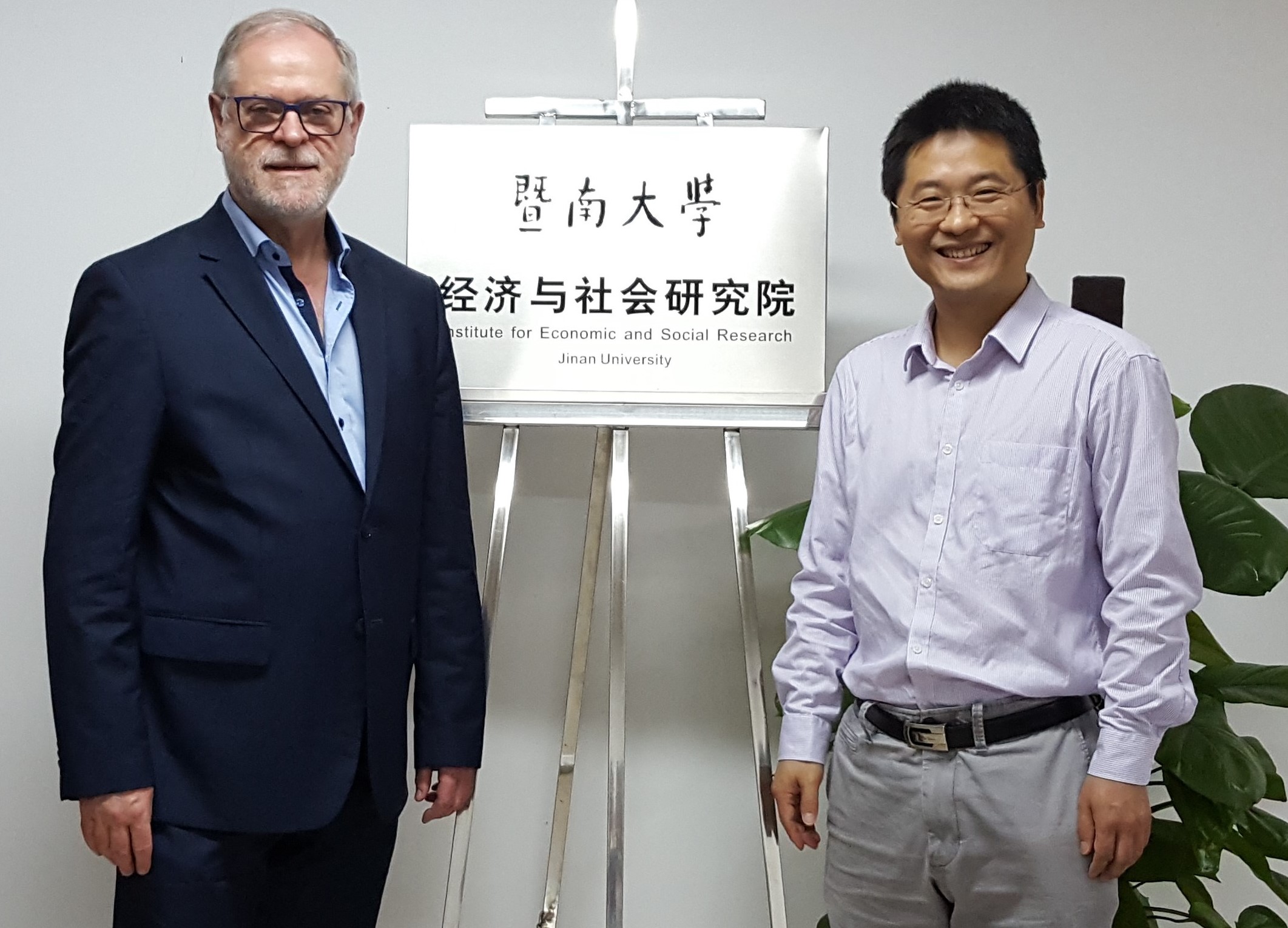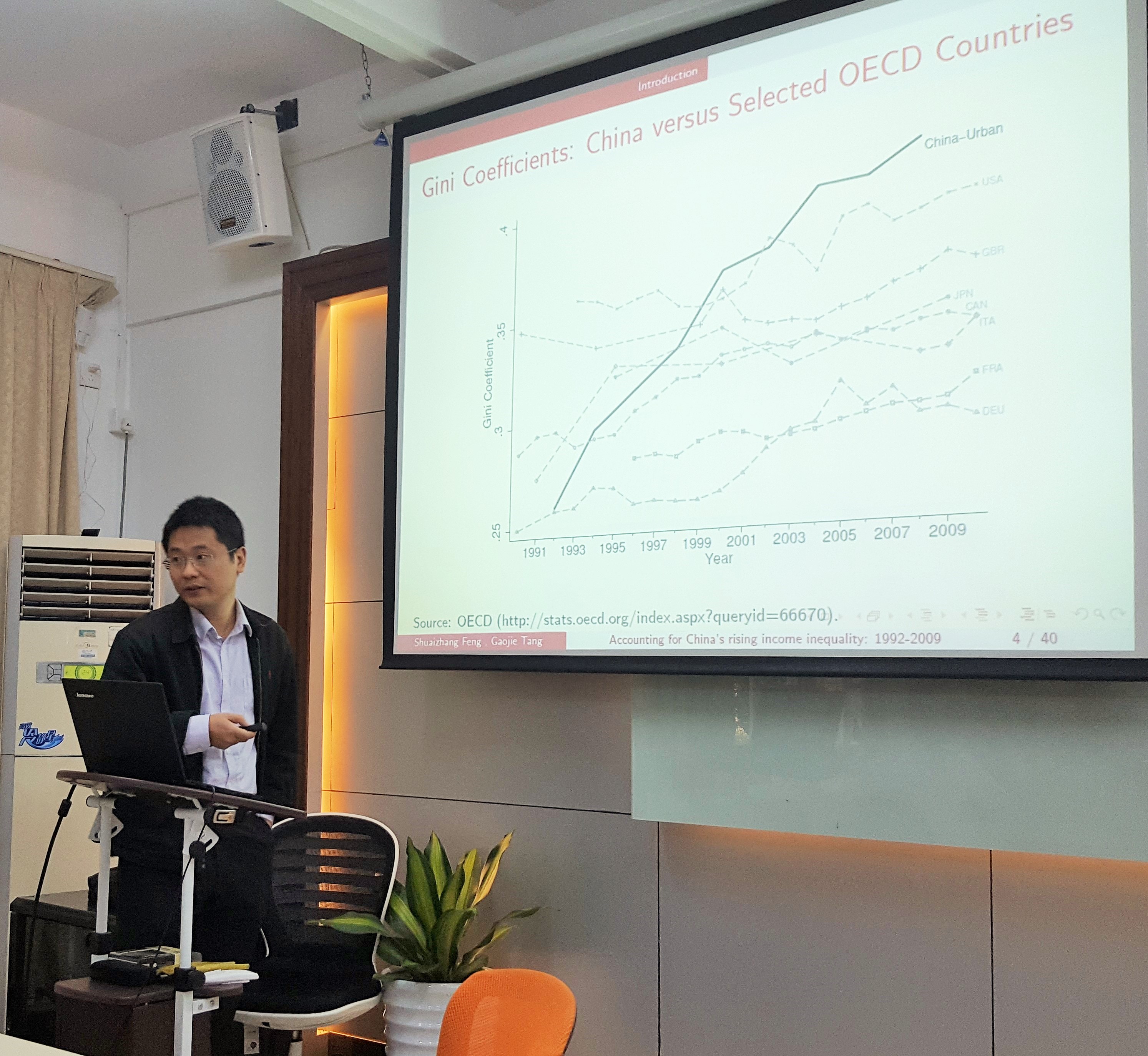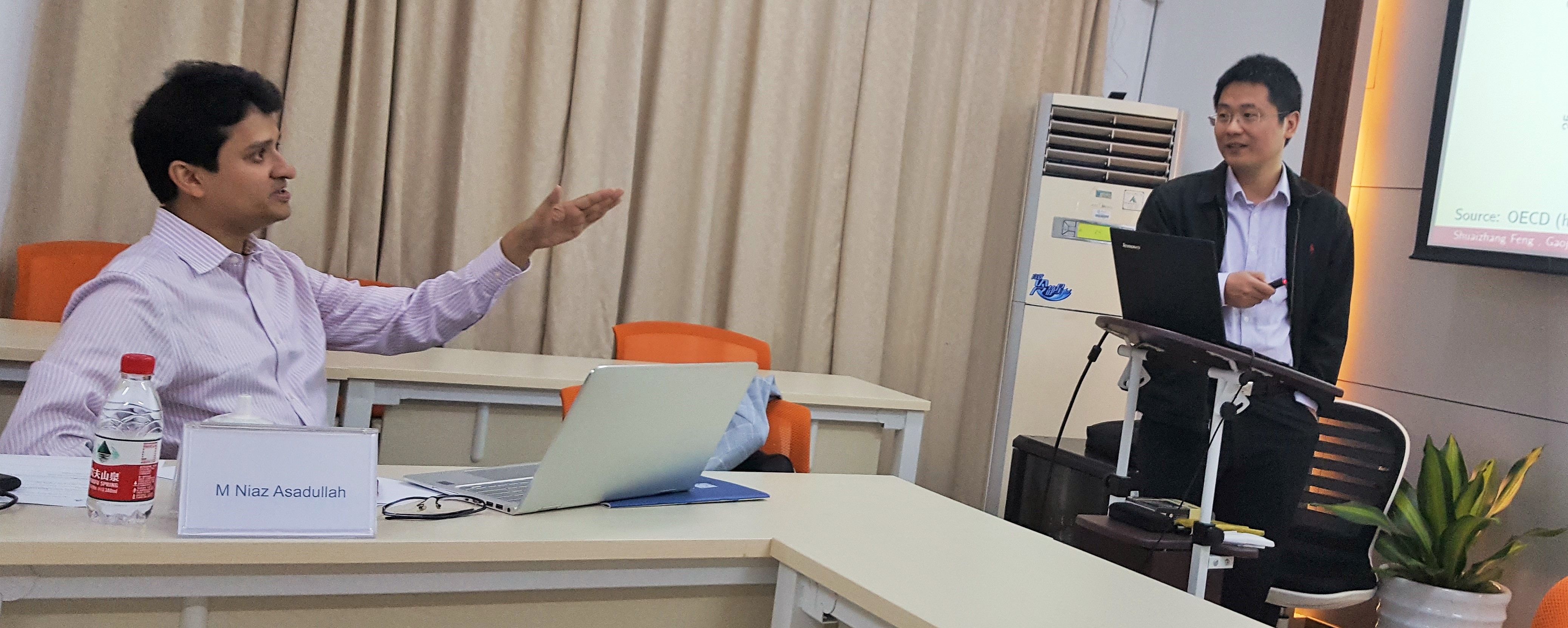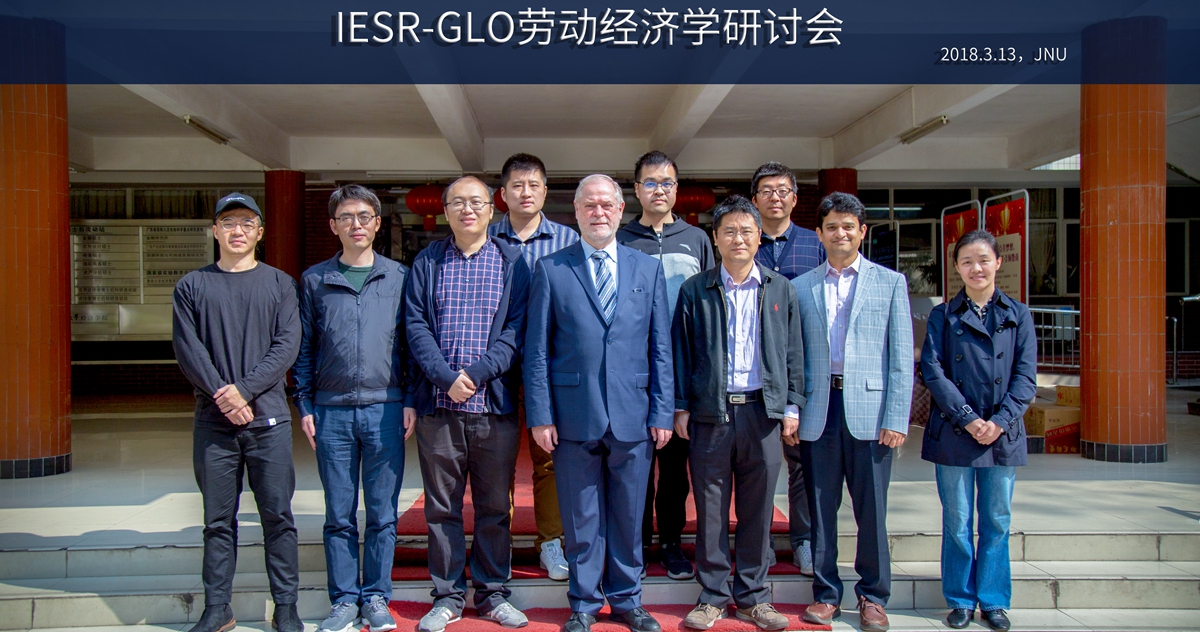Professor and Dean Shuaizhang Feng, Head of the Institute for Economic and Social Research (IESR) and GLO President Klaus F. Zimmermann (UNU-MERIT, Maastricht) met with a larger number of Chinese researchers, GLO Fellows and scientists from outside China for the first IESR – GLO Labor Workshop. The event took place at Jinan University, China, in Guangzhou on March 13, 2018. GLO stands for Global Labor Organization, one of the largest networks in economics in the world. As a GLO Fellow, Professor Feng is also a prominent member of this network.
Welcome to an exciting and inspiring event: Shuaizhang Feng (right), Founding Director of IESR and its spiritus rector, and GLO President Klaus F. Zimmermann.
Several other GLO Fellows were present at the event, including M Niaz Asadullah (University of Malaysia and GLO), who is also the Southeast Asia Lead of the GLO research program.
See below for the full conference program. A selective overview:
- Prof. Zimmermann provided the opening paper presentation on “Arsenic Contamination of Drinking Water and Wellbeing ” at the workshop.

- The second paper was presented by Zhe Yang (Jinan University and GLO) on bargaining relationships in partnerships (“Cohabitation or Marriage? Relationship Bargaining with an Endogenously Determined Balance of Power”). He documented that relative to marriage, cohabitation is popular among two types of couples: For the first type, the two partners have roughly equal potential wages and both prefer cohabitation to marriage, while the second type is featured by two partners with extremely unequal potential wages, of whom the poorer partner wants marriage, but the richer partner prefers cohabitation and uses breaking up as a threat in the resulted relationship bargaining. To examine the causal effect of gender-wage equality on cohabitation rates, the speaker constructed potential wages for both working and non-working partners. The empirical findings confirmed that a couple’s probability of cohabitation relative to marriage declines first, and then rises as the differences in potential-wages increases.
- The third paper was provided by Shu Cai (Jinan University and GLO) on “Migration and Subjective Well-Being of Left-behind Parents in Rural China”. His study (co-authored by GLO Fellow Albert Park, Hongkong) found that the impact of migration on the well-being of the left-behind is not straightforward. Using panel data of experienced well-being measured by the Day Reconstruction Method in rural China the research investigated the overall impact of migration of adult children on the subjective well-being of the left-behind parents. The instrumental variable estimates suggest that parents left behind are worse off when their adult children migrate, even though they are economically better off. The left-behind parents spend more time working and less time in social activities, and they experience lower well-being.
- A further paper was delivered by Yi Chen (Jinan University and GLO) on “China’s Family Planning Leading Group and the Fertility Decline since 1970”: China introduced its world-famous one-child policy in 1979. However, its fertility appears to have declined even faster in the early 1970s than it did after 1979. The research highlighted the importance of the Family Planning Leading Group in understanding the fertility decline since the early 1970s. In 1970, provinces gradually established an institution named the Family Planning Leading Group to facilitate the restoration of family planning, which had previously been interrupted by the outbreak of the Cultural Revolution. An important feature of this policy change was that the process differed by province. The research found that provinces that formed the leading group earlier also experienced an earlier decline in the fertility rate. Exploiting this provincial variation it is possible to explain about half of the decline in China’s total fertility rate from 5.7 in 1969 to 2.7 in 1978. In comparison to the 1979 one-child policy, which previous research has widely treated as an exogenous shock to the fertility rate, the presented empirical strategy captures a greater decline in the fertility rate and does not result in a contemporaneous increase in the sex ratio.
- Shuaizhang Feng (Jinan University and GLO) studied “China’s Income Inequality: 1992-2009″.
- M Niaz Asadullah (University of Malaysia and GLO) spoke about “Marriage, Work, and Migration: The Role of Infrastructure Development and Gender Norms”.
Niaz Asadullah & Shuaizhang Feng interacting lively.
The IESR-GLO Joint Labor Workshop Program
Venue: Room 106, Zhonghui Building, Jinan University, Guangzhou, China
9:00am: Welcome
Shyamal Chowdhury, Annabelle Krause and Klaus F. Zimmermann (GLO and UNU-MERIT): Arsenic Contamination of Drinking Water and Wellbeing
Zhe Yang (Jinan University and GLO): Cohabitation or Marriage? Relationship Bargaining with an Endogenously Determined Balance of Power
Shu Cai (Jinan University and GLO), Albert Park and Winnie Yip: Migration and Subjective Well-Being of Left-behind Parents in Rural China: Evidence from Time Use Data
12:00-1:30pm Lunch
1:30pm:
Amrit Amirapu, M Niaz Asadullah (University of Malaysia and GLO) and Zaki Wahhaj: Marriage, Work, and Migration: The Role of Infrastructure Development and Gender Norms
Shuaizhang Feng (Jinan University and GLO) and Gaojie Tang: Accounting for China’s Income Inequality: 1992-2009
Yi Chen (Jinan University and GLO) and Yingfei Huang: The Power of the Government: China’s Family Planning Leading Group and the Fertility Decline since 1970
Core Participants of the IESR – GLO Workshop
See: https://iesr.jnu.edu.cn/#/


Ends;





